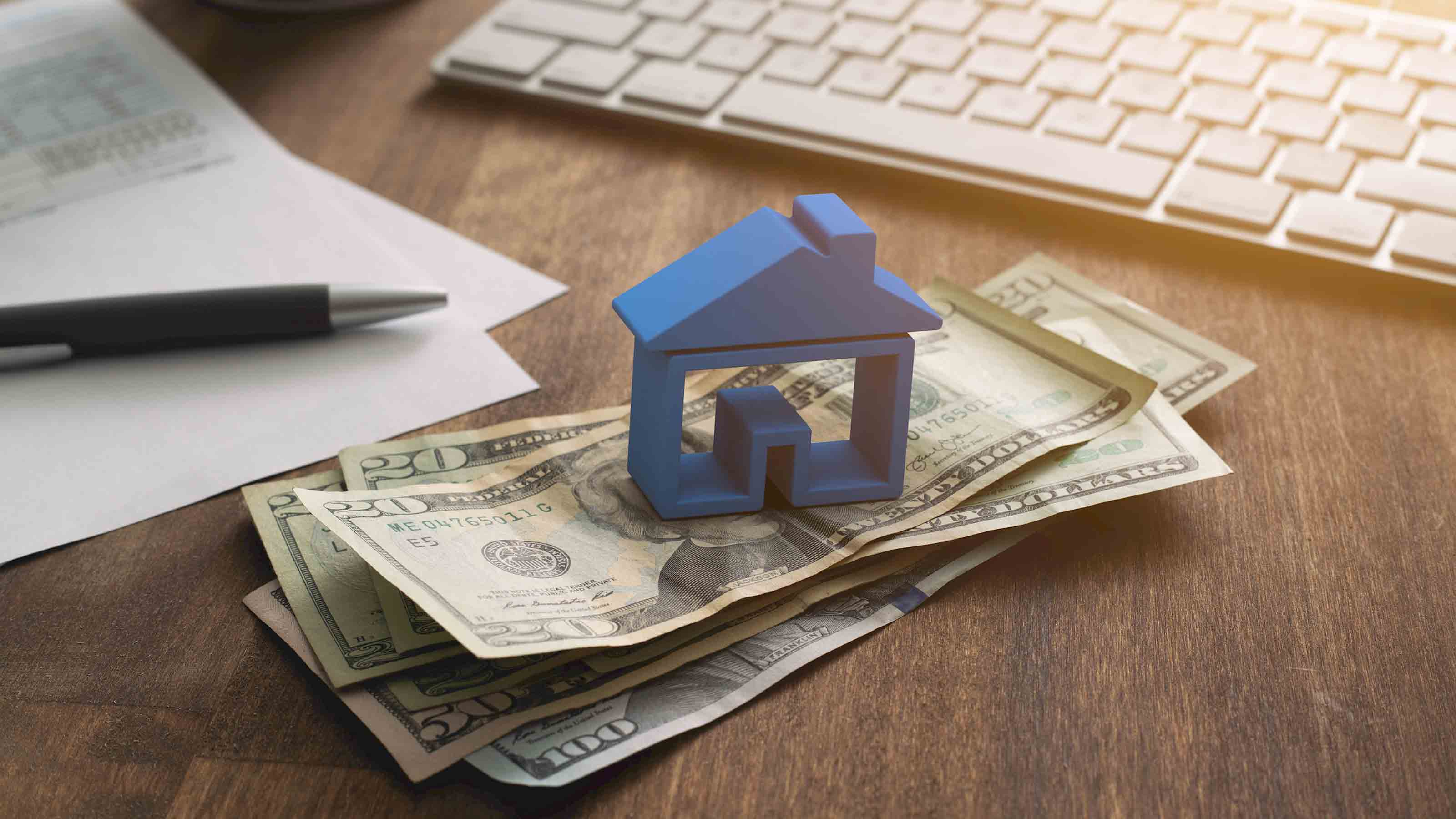What Is an Earnest Money Deposit?
Earnest money is a sum of cash you pay before closing on a home, to show the seller you're serious. How does it work?


Profit and prosper with the best of Kiplinger's advice on investing, taxes, retirement, personal finance and much more. Delivered daily. Enter your email in the box and click Sign Me Up.
You are now subscribed
Your newsletter sign-up was successful
Want to add more newsletters?

Delivered daily
Kiplinger Today
Profit and prosper with the best of Kiplinger's advice on investing, taxes, retirement, personal finance and much more delivered daily. Smart money moves start here.

Sent five days a week
Kiplinger A Step Ahead
Get practical help to make better financial decisions in your everyday life, from spending to savings on top deals.

Delivered daily
Kiplinger Closing Bell
Get today's biggest financial and investing headlines delivered to your inbox every day the U.S. stock market is open.

Sent twice a week
Kiplinger Adviser Intel
Financial pros across the country share best practices and fresh tactics to preserve and grow your wealth.

Delivered weekly
Kiplinger Tax Tips
Trim your federal and state tax bills with practical tax-planning and tax-cutting strategies.

Sent twice a week
Kiplinger Retirement Tips
Your twice-a-week guide to planning and enjoying a financially secure and richly rewarding retirement

Sent bimonthly.
Kiplinger Adviser Angle
Insights for advisers, wealth managers and other financial professionals.

Sent twice a week
Kiplinger Investing Weekly
Your twice-a-week roundup of promising stocks, funds, companies and industries you should consider, ones you should avoid, and why.

Sent weekly for six weeks
Kiplinger Invest for Retirement
Your step-by-step six-part series on how to invest for retirement, from devising a successful strategy to exactly which investments to choose.
Getting ready to shop for a home? An important part of the home buying process is making an earnest money deposit, or “EMD.”
Also known as a “good faith deposit,” earnest money is a lump sum of cash that you plunk down when you enter into a purchase agreement with a home seller. The deposit serves as a sign of commitment and a gesture of goodwill, since you could be required to forfeit your deposit if you try to back out of the deal without a valid reason.
“Essentially, it proves to the seller that you have skin in the game,” says Seth Lejeune, a real estate agent in Blue Bell, PA. Assuming all goes well, the earnest money gets applied to your down payment or closing costs at settlement.
From just $107.88 $24.99 for Kiplinger Personal Finance
Become a smarter, better informed investor. Subscribe from just $107.88 $24.99, plus get up to 4 Special Issues

Sign up for Kiplinger’s Free Newsletters
Profit and prosper with the best of expert advice on investing, taxes, retirement, personal finance and more - straight to your e-mail.
Profit and prosper with the best of expert advice - straight to your e-mail.
Let’s take a closer look at earnest money deposits by answering some frequently asked questions.
Where is earnest money held?
Typically, you write a check for the earnest money shortly after your offer is accepted. Then the check is cashed and held in an escrow account by a neutral third party, such as a title company, a real estate brokerage, or an attorney.
Placing the money in escrow ensures that it remains safe and impartially managed until the sale is finalized or terminated.
You can use our tool, in partnership with Bankrate, to compare mortgage rates.
Why do sellers require an earnest money deposit?
Most sellers will only accept an offer that comes with an earnest money deposit, and for good reason: It provides them with financial security should you back out without a valid reason, providing compensation for the time that their property was off the market.
What's a typical earnest money deposit?
On average, you can expect to fork over 1% to 2% of a home's purchase price for your earnest money deposit. For a $300,000 house, that’s $3,000 to $6,000.
However, in today’s uber-competitive housing market, where home supply has shriveled to near record lows, making a larger deposit could strengthen your offer, Lejeune says. “Lately I’ve been encouraging buyers to put down a 5% to 6% deposit, and we point that out to the seller to make our bid more competitive,” he says.
What happens to the earnest money?
The fate of your earnest money deposit can vary depending on several outcomes:
A smooth transaction: If the deal proceeds according to plan and you close on time, the earnest money gets applied toward your down payment or closing costs.
A failed contingency: Real estate contracts often include contingencies that allow the buyer to back out of the deal under certain conditions, such as a failed home inspection, a low appraisal, or the inability to secure financing. If a contract contingency is not met, you get your earnest money back and walk away from the deal scot-free.
The seller fails to fulfill obligations or walks for no reason: You typically get your earnest money back if the seller fails to fulfill their obligations specified in the sales contract or if the seller changes their mind and tries to terminate the contract without a valid reason.
You get cold feet. If you decide to back out of the purchase without a valid reason as defined in the purchase agreement, the seller may be entitled to your earnest money deposit.
There’s an earnest money dispute. If the deal falls through and a disagreement arises over who is entitled to the earnest money, the neutral entity that’s holding the funds cannot unilaterally decide to release the money to any one particular party. “Every state has its own laws around earnest money deposit disputes,” Lejeune says. “In Pennsylvania, there is an arbitration and mediation process that has to take place.”
Lejeune’s advice: “Buyers and sellers should look at the terms around the earnest money deposit in their purchase agreement and what mechanisms are in place if either party defaults.”
How do you get more information?
If you have questions about how earnest money deposits are handled in your state, consider consulting a local real estate attorney. You can find one by using the American Bar Association’s directory or by asking your real estate agent for a recommendation. Most real estate lawyers charge $150 to $350 per hour, according to Law Guideline, a legal advice website.
Related Content
Profit and prosper with the best of Kiplinger's advice on investing, taxes, retirement, personal finance and much more. Delivered daily. Enter your email in the box and click Sign Me Up.

Daniel Bortz is the Personal Finance Editor at AARP and is based in Arlington, Va. His freelance work has been published by The New York Times, The Washington Post, Consumer Reports, Newsweek, and Money magazine, among others.
-
 Quiz: Do You Know How to Avoid the "Medigap Trap?"
Quiz: Do You Know How to Avoid the "Medigap Trap?"Quiz Test your basic knowledge of the "Medigap Trap" in our quick quiz.
-
 5 Top Tax-Efficient Mutual Funds for Smarter Investing
5 Top Tax-Efficient Mutual Funds for Smarter InvestingMutual funds are many things, but "tax-friendly" usually isn't one of them. These are the exceptions.
-
 AI Sparks Existential Crisis for Software Stocks
AI Sparks Existential Crisis for Software StocksThe Kiplinger Letter Fears that SaaS subscription software could be rendered obsolete by artificial intelligence make investors jittery.